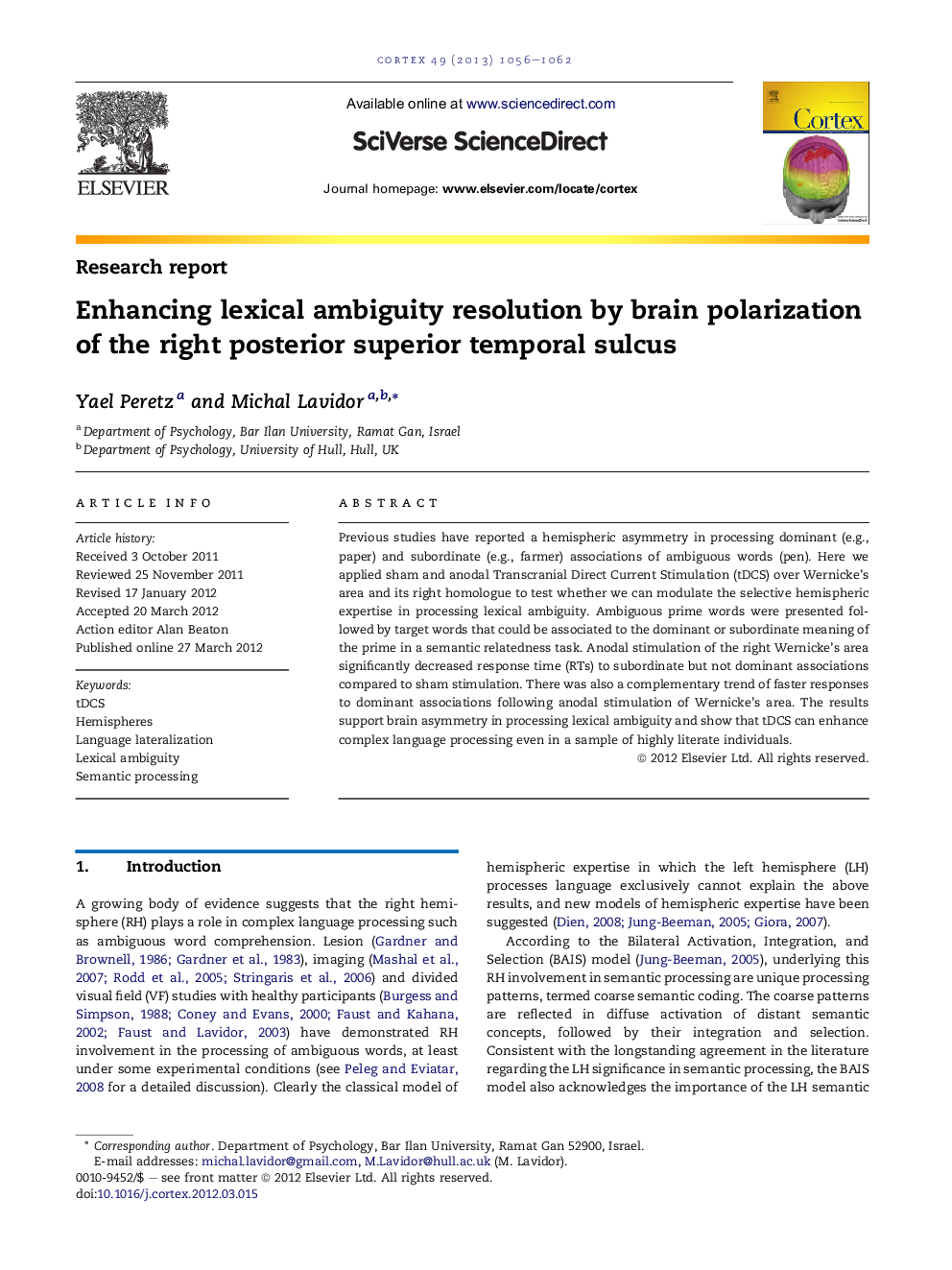| Article ID | Journal | Published Year | Pages | File Type |
|---|---|---|---|---|
| 942095 | Cortex | 2013 | 7 Pages |
Previous studies have reported a hemispheric asymmetry in processing dominant (e.g., paper) and subordinate (e.g., farmer) associations of ambiguous words (pen). Here we applied sham and anodal Transcranial Direct Current Stimulation (tDCS) over Wernicke’s area and its right homologue to test whether we can modulate the selective hemispheric expertise in processing lexical ambiguity. Ambiguous prime words were presented followed by target words that could be associated to the dominant or subordinate meaning of the prime in a semantic relatedness task. Anodal stimulation of the right Wernicke’s area significantly decreased response time (RTs) to subordinate but not dominant associations compared to sham stimulation. There was also a complementary trend of faster responses to dominant associations following anodal stimulation of Wernicke’s area. The results support brain asymmetry in processing lexical ambiguity and show that tDCS can enhance complex language processing even in a sample of highly literate individuals.
